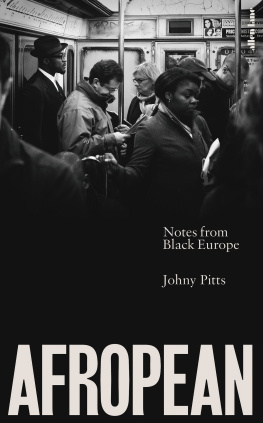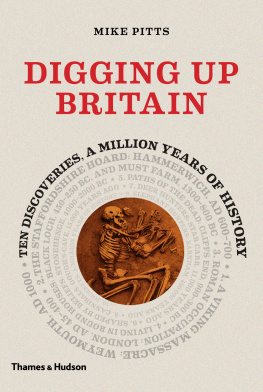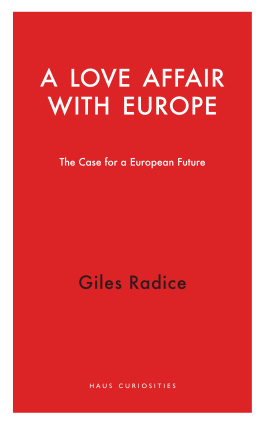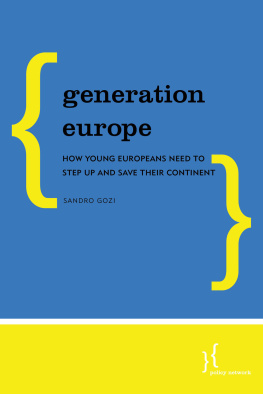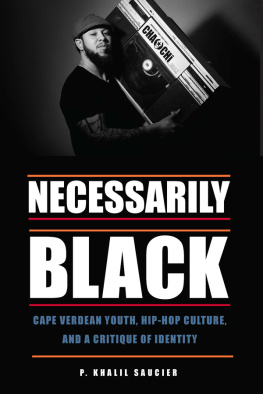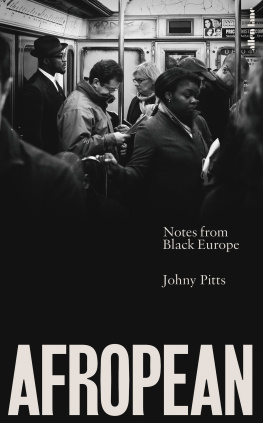Johny Pitts
AFROPEAN
Notes from Black Europe

PENGUIN BOOKS
UK | USA | Canada | Ireland | Australia
India | New Zealand | South Africa
Penguin Books is part of the Penguin Random House group of companies whose addresses can be found at global.penguinrandomhouse.com.

First published 2019
Copyright Johny Pitts, 2019
The moral right of the author has been asserted
Photograph Johny Pitts
The extract on is by permission of Aim Csaire, Cahier dun retour au pays natal Prsence Africaine Editions, 1956
ISBN: 978-0-141-98473-5
This ebook is copyright material and must not be copied, reproduced, transferred, distributed, leased, licensed or publicly performed or used in any way except as specifically permitted in writing by the publishers, as allowed under the terms and conditions under which it was purchased or as strictly permitted by applicable copyright law. Any unauthorized distribution or use of this text may be a direct infringement of the authors and publishers rights and those responsible may be liable in law accordingly.
To my parents, Richie and Linda,
and my siblings, Richard and Chantal
They live in a sort of frontier zone criss-crossed by ethnic, religious and other fault lines. But by virtue of this situation peculiar rather than privileged they have a special role to play in forging links, eliminating misunderstandings, making some parties more reasonable and others less belligerent And that is precisely why their dilemma is so significant: if they themselves cannot sustain their multiple allegiances, if they are continually pressed to take sides then all of us have reason to be uneasy about the way the world is going
Amin Malouf, Les Identits meurtrires, 1998
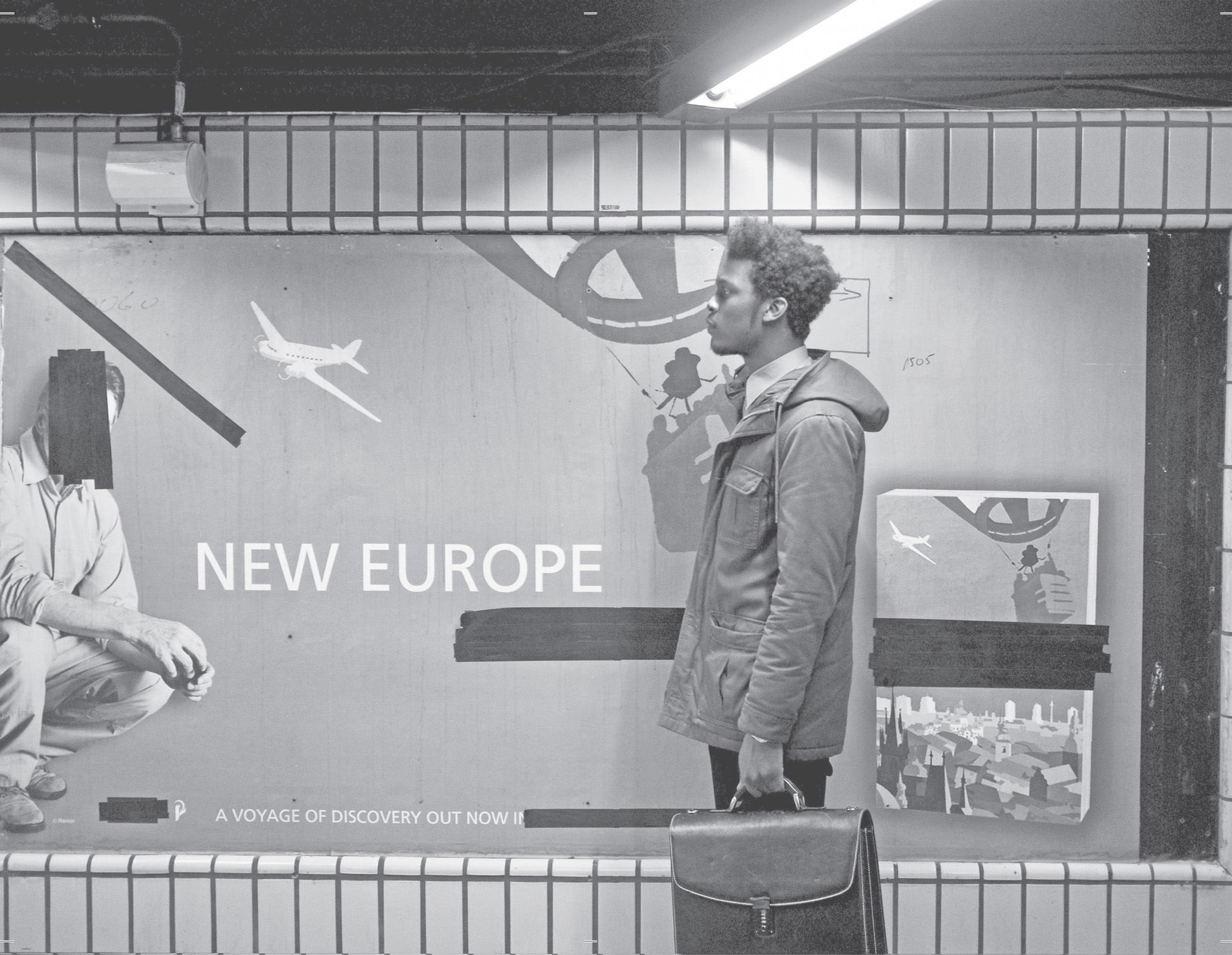
Introduction
When I first heard it, it encouraged me to think of myself as whole and unhyphenated: Afropean. Here was a space where blackness was taking part in shaping European identity at large. It suggested the possibility of living in and with more than one idea: Africa and Europe, or, by extension, the Global South and the West, without being mixed-this, half-that or black-other. That being black in Europe didnt necessarily mean being an immigrant.
Labels are invariably problematic, often provocative, but at their best they can sing something into visibility. From my stymied vantage point growing up in a working-class area of Sheffield ravaged by the external forces of free-market economics and the internal, protective force of local insularity that took shape in postcode wars I began to notice a world that had been invisible to me before, or at the very least implausible; in my small corner of Britain, I had felt I was being forced to react against one culture or overidentify with the other.
Originally coined in the early 90s by David Byrne and Belgian-Congolese artist Marie Daulne, front woman of music group Zap Mama, I first encountered this notion of Afropean in the realms of music and fashion. Among many others, Les Nubians, soul sisters from Chad by way of France, exuded it, as did Neneh Cherry, whose roots are Swedish and Sierra Leonean, Joy Denalane from South Africa via Germany, and Claude Grunitzkys Trace publication. Transcultural Styles and Ideas was the magazines tagline and reflected Grunitzkys own Afropean identity: he had a Polish grandfather on his mothers side, was born in Togo, raised in Paris and launched his magazine in London. This was a very attractive scene I was tapping into: beautiful, talented, successful black Europeans effortlessly articulating their cultural influences in coherent and creative ways. It was particularly attractive to me because the sense was that this iteration of blackness existing in Europe appeared as if it wasnt going to be going anywhere any time soon, felt closer to home than the sometimes overbearing cultural and political language emerging out of America, and more encompassing and nuanced than the Black Britain club, whose sense of itself was starting to feel outdated, often packaged exclusively as an embodiment of the Windrush Generation.
Initially, then, I saw Afropean as something of a utopian alternative to the doom and gloom that has surrounded the black image in Europe in recent years and an optimistic route forward. I wanted to work on a project that connected and presented Afro-Europeans as lead actors in our own story and, with all this glorious Afropean imagery in mind, I imagined this would result in some kind of coffee-table photo-book with snippets of feel-good text to accompany a series of trendy photographic portraits. There would be images of the success stories of black Europe: young men and women whose street style effortlessly and elegantly articulated an empowered black European mood.
It was a visit to the Jungle in Calais in 2016 that encouraged me to reconsider this approach. Over some fragrant, milky Arabic tea, Hishem, a young man from Sudan who ran one of many small, remarkably organized cafs and had been living in the Jungle for ten months, told me how hed lost everything, had no surviving family members, had painful memories of the past and tremulous visions of the future and was stuck in this limbo land between Africa and Europe, home (a little of which hed miraculously fashioned in his cushion-covered caf) and anonymity. As I left his creaking plywood premises, he suggested that I write about his story and about life in the Jungle, a request I was nervous about. This man was intelligent, articulate and literate: wouldnt it be better that he write about the Jungle himself? Maybe I could help attract attention to his writing, or publish his story on the website that I run, but what did I personally know about seeing friends massacred, fleeing war, hiding for my life in shipping containers or on ill-equipped boats in order to arrive penniless at a bunch of cold, windswept shacks in the hinterlands of northern France, apart from what he was telling me?
After exchanging contact details, I left the Jungle on my bicycle and slowly realized that I was being watched and followed through the blustery streets of Calais by the French military police, the Gendarmerie. Attempting to enter the white gates of the port to catch my ferry back to the UK, I was stopped before I could even get to passport control, searched, asked for my ID, where I was going, where Id come from, how long Id been away, and why. Finally, after more questioning and looks of suspicion, I was allowed to enter an official compound Id seen other brown-skinned men of my age look longingly at from a distance. I was in; they were out.
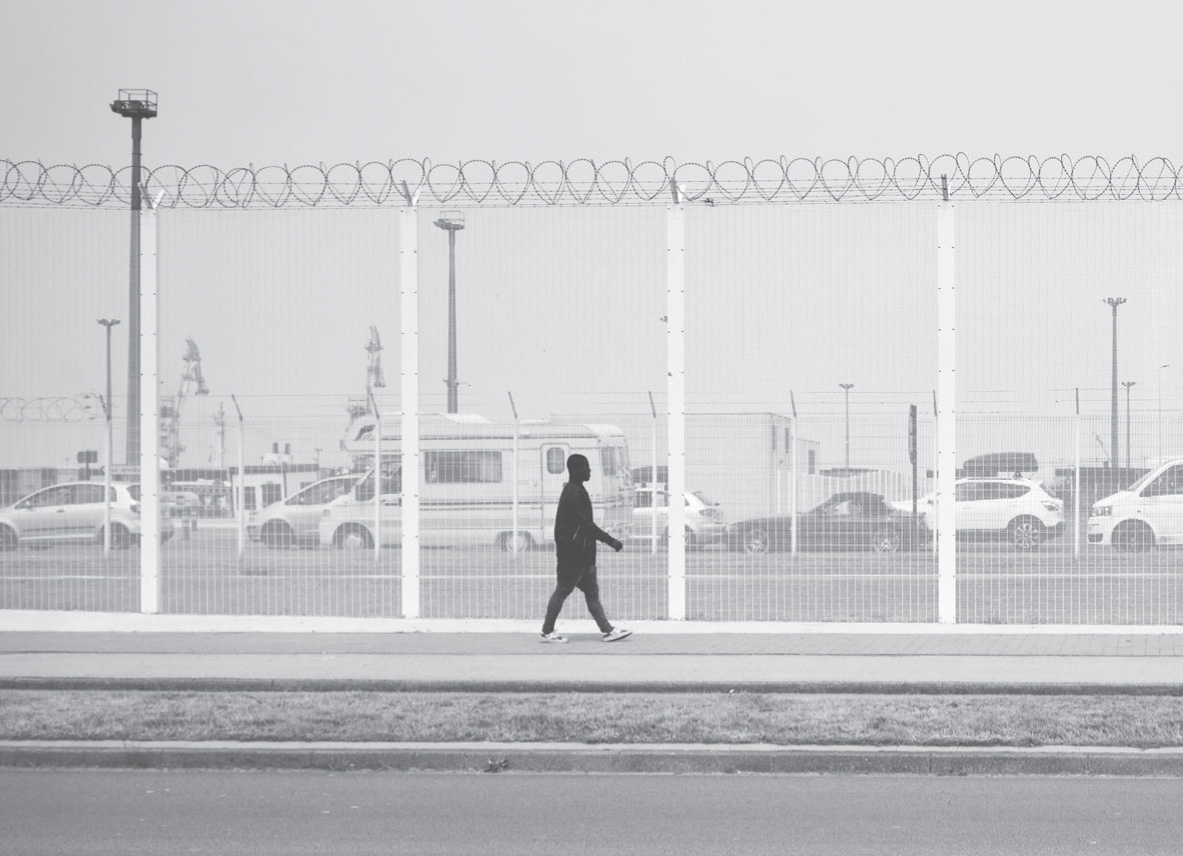
Unlike the people I met in the Jungle, I wasnt so much living in limbo as living with liminality. I was in because I had ID. I had ID because I was born and raised in England, had a history connected to Europe, knew how things ran. And yet, within this piece of geography, this idea of Europe, I was frequently reminded that I wasnt all the way in; one Remembrance Day a day Ive come to dread for the way it spikes an ugly nationalism which I sometimes find myself on the receiving end of I was hit with that old chestnut and told go back to where you came from by a middle-aged man, red-faced with rage and racism. My skin colour had disguised various facts, such as my grandfather having fought for Britain behind enemy lines in the Second World War and winning a medal for doing so. My skin had disguised my Europeanness; European was still being used as a synonym for white.

